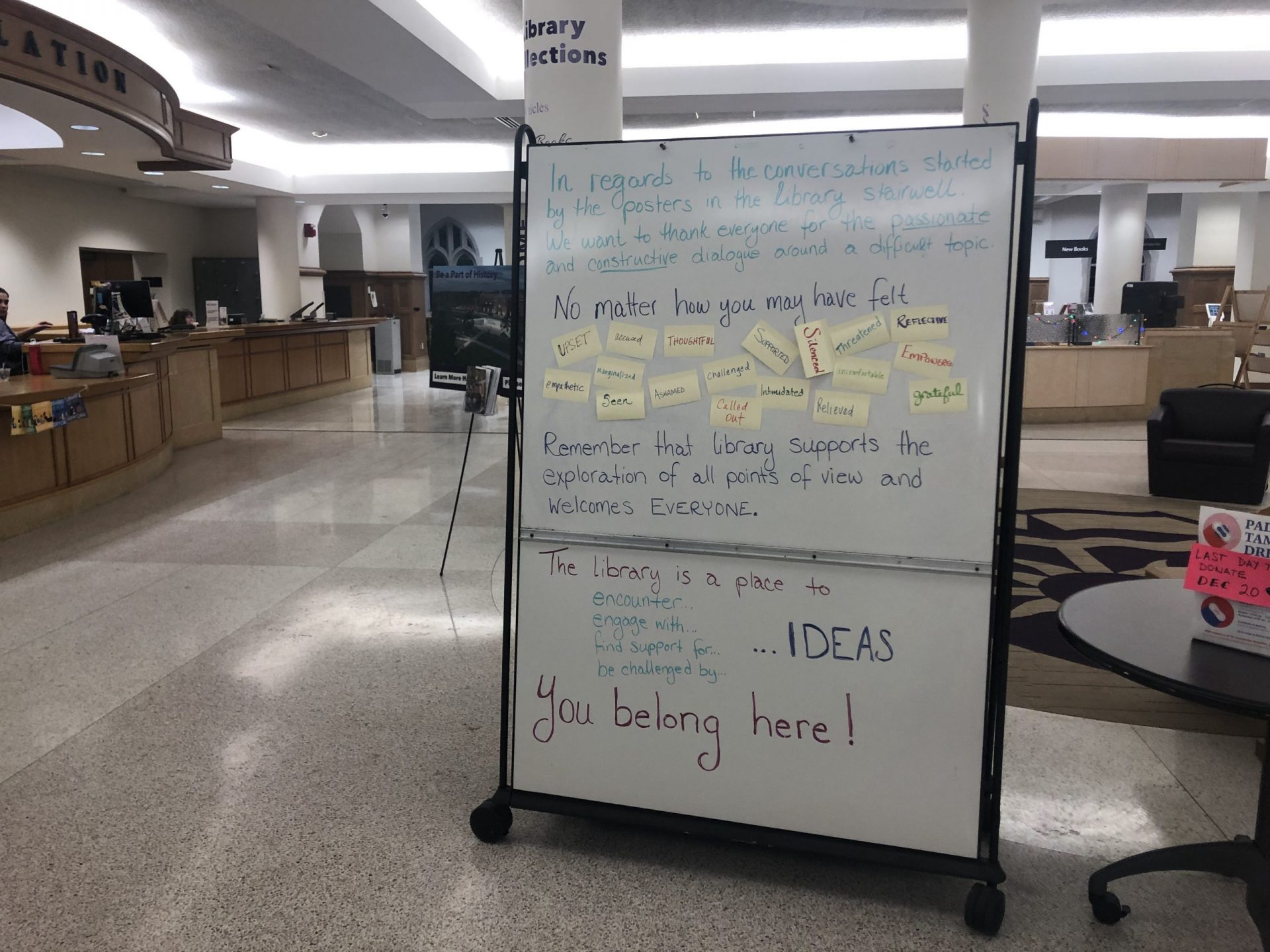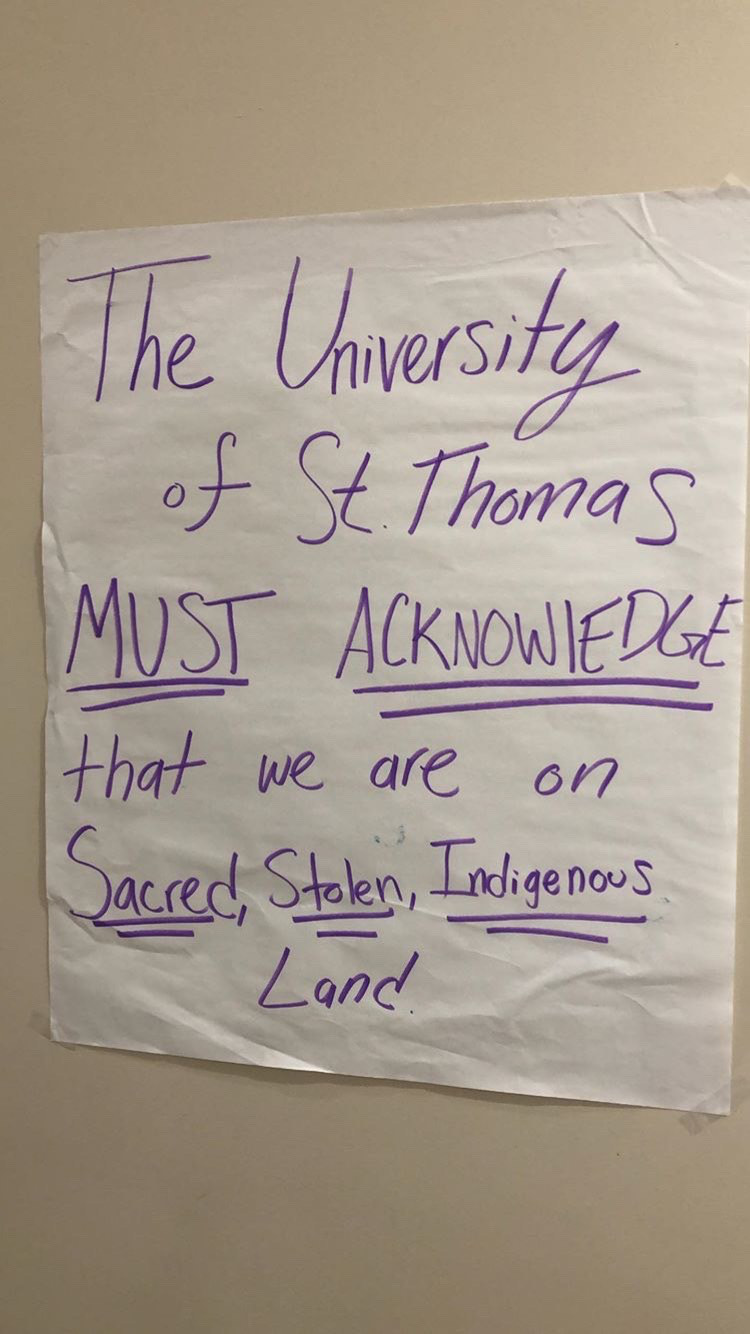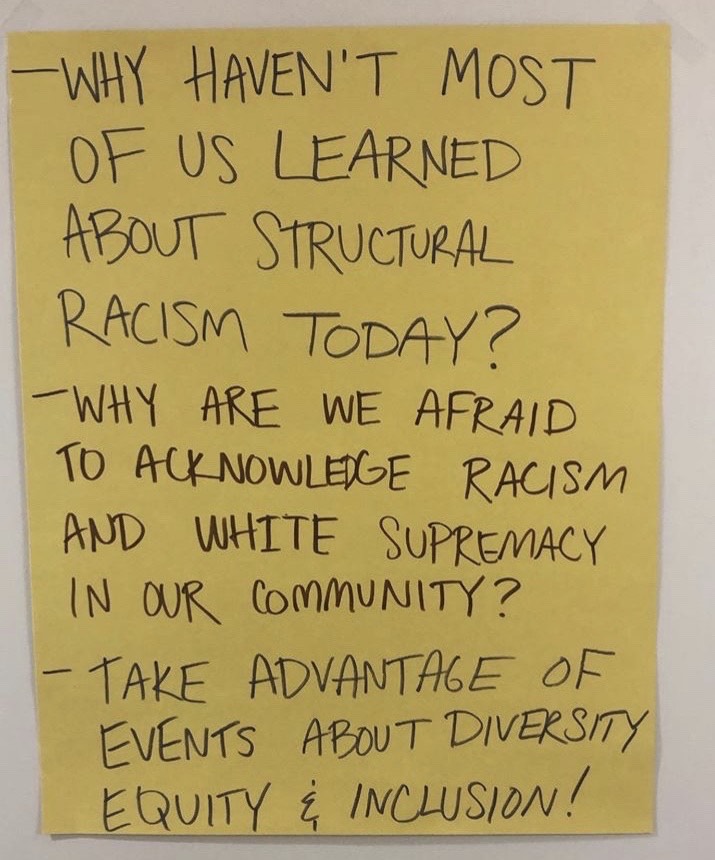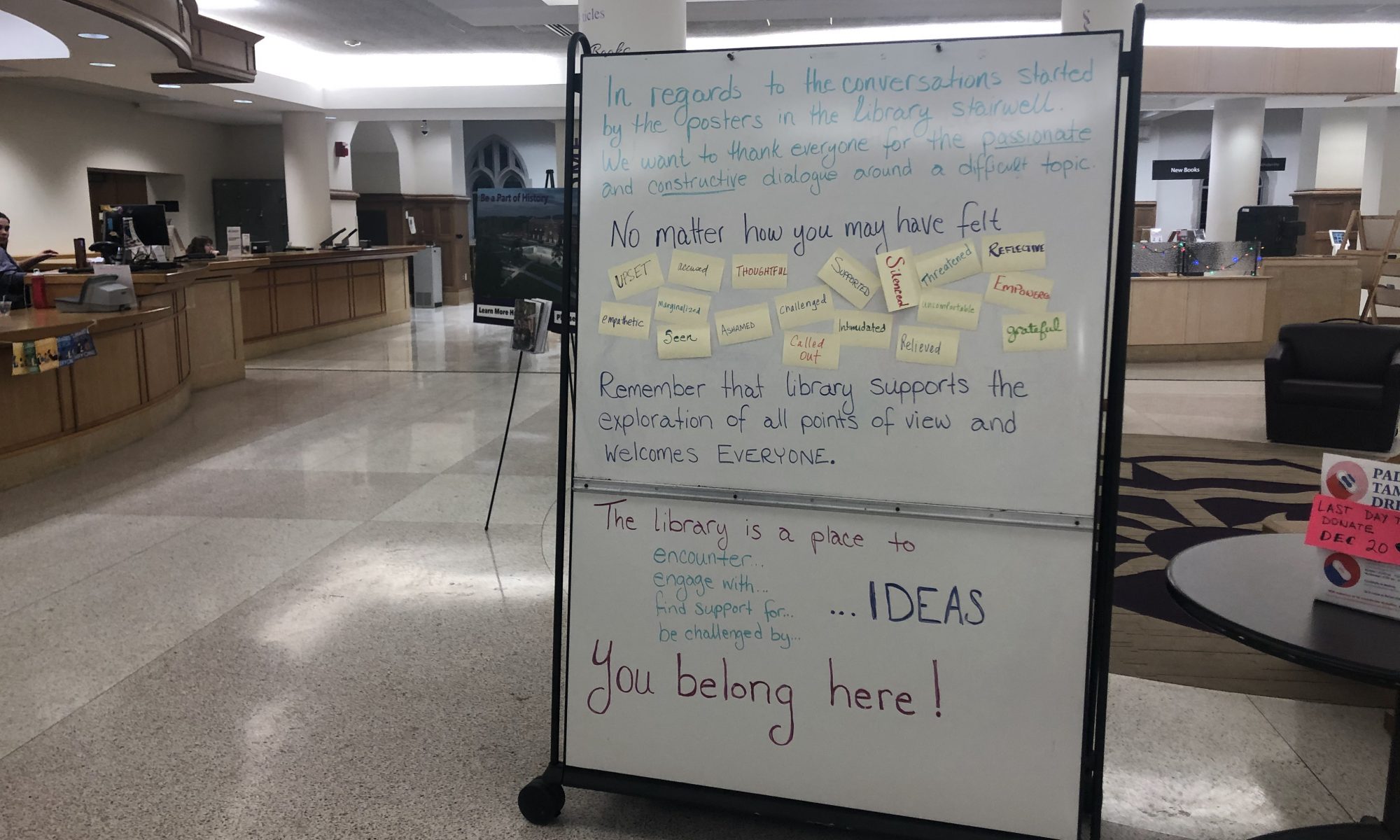
A whiteboard, put up by library staff, explains the purpose of the World Cafe on Racism posters stands in the library. The posters were removed from the library walls because of the tension and criticism that surfaced. (Emily Haugen/TommieMedia)
After only one week, Mike Klein decided to take down the World Cafe on Racism posters from the library walls because of the tension and criticism that surfaced.
Klein, St. Thomas Justice and Peace Studies program director, said the problem wasn’t the posters; the problem is society’s struggle to engage in discussions about racism.
“Racism seems to strain our capacity for dialogue,” Klein said.
That’s why racism made a perfect theme for October’s World Cafe event, a structured discussion that has been at St. Thomas since 2012. This year, 14 faculty and 320 students attended, and many made posters asking challenging questions in the aftermath of several racial incidents on campus.

One poster read, “After racist incidents… Why doesn’t St. Thomas hold people accountable? #daddy’smoney.”
Mid-semester, Students for Justice and Peace club coordinator Savannah Thibert suggested putting up the posters in the library.
Post-it notes gave passersby an opportunity to continue the discussion, but the ensuing tension fell on students and faculty of color, who Klein said may have felt “unsettled and unsafe.”
Some responses were as follows:
“The questions feel accusatory and some (#daddy’smoney) are not productive when they answer their own question. Start conversations, but do so in a way that allows for meaningful discussions, not defensive discussion.”
“It’s important to think about why the people asking those questions feel defensive instead of just calling them unproductive. There are lots of dialogues on campus. Have we showed up?”
“Imagine how intimidating it is to be a marginalized student on this campus EVERYDAY.”
When the artwork seemed to present unforeseen challenges rather than foster inclusive discussion, Klein took them down to reconsider the approach.
“A lot of times, you have to step back and realize your intentions may not be the same as the impact that they have,” Thibert said.

In the weeks following the removal, a whiteboard at the library entrance read, “In regards to the conversations started by the posters in the library stairwell. We want to thank everyone for the passionate and constructive dialogue around a difficult topic… the library is a place to encounter… engage with… find support for… be challenged by… IDEAS. You belong here!”
Fellow club coordinator Raechel Murray said not enough is done to attack the problems St. Thomas faces.
“There’s a lot more work this campus can do outside the World Cafe,” Murray said. “I feel like we don’t have to have a World Cafe to be having these discussions.”
Thibert and Murray are Justice and Peace Studies students, and they feel that social justice does not reach into every academic discipline.
“Just because you’re in a STEM field doesn’t mean you’re not close to this issue,” Thibert said. “There’s not that many faculty of color in STEM, and there’s a reason for it. Getting at those underlying issues within the majors is something that should be done.”
A recent TommieMedia Letter to the Editor from international faculty expressed similar concerns, saying minority faculty and staff face bias and stereotypes that can affect pay, amongst other things.
Although Murray advocated for changes, she emphasized that Justice and Peace students are there to learn and engage, not to bring justice to campus.
“We are not social justice warriors,” Murray said. “We want to be doing this work with the people who are going to be impacted by it.”
Klein has recently met with St. Thomas President Julie Sullivan, administrators and students to “re-imagine how to address” the project in the spring.
Thibert and Murray said they don’t know how it will be done, but next semester, students can expect to see more posters and another opportunity to discuss racism outside of the classroom.
Mia Laube can be reached at mia.laube@stthomas.edu.




Mia, nice job on the story. I just wanted to point out that it was the library staff who put up the white board after the signs were taken down.